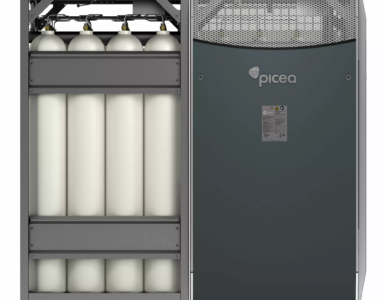Salt caverns in Germany could be effective hydrogen storage – report – CEW.
Salt caverns could be an effective location for storing hydrogen in Germany due to their geological, physical and chemical properties, according to a report published by the Institute of Energy Economics at the University of Cologne (EWI). The cost of storage can vary greatly and typically ranges between 0.66 euros and 1.75 euros per kilogram, depending on criteria like the cavern’s size and the number of times the hydrogen is exchanged. For smaller caverns with only one hydrogen cycle per year, however, the levelised cost of storage could be as high as 3.50 euros per kilogram. In larger caverns with up to three cycles per year, it could potentially fall to below 0.45 euros per kilogram. The storage capacity of an average salt cavern in Germany lies between 35 and 140 gigawatt-hours. Report co-author Ann-Kathrin Klaas told PV magazine storage costs are “quite relevant at around one euro per kilogramme compared to hydrogen production and import costs.” The production of hydrogen in the current German electricity system would cost around three to four euros per kilogramme, meaning storage would account for around a quarter of the total supply costs.
Salt caverns are artificial cavities in underground salt formations, which are created by the controlled dissolution of rock salt by injection of water. The report highlights that Germany could be a central location for hydrogen storage in Europe. On top of having many salt caverns, the country also has comparatively large amount of natural gas storage capacity which could be converted to hydrogen storage. By 2045, Germany’s demand for hydrogen storage capacity could be up to 104 terawatt hours, and converting natural gas storage capacity could make up around 30 to 33 terawatt hours of that.
German energy company Uniper already announced last month that they aimed to store at least 250 gigawatt hours of hydrogen in salt caverns by 2030. Energy scenarios commissioned by the German Economy Ministry (BMWK) show that more hydrogen storage capacity is needed to support the expansion of solar energy.
🔥 What about we co-host a webinar? Let's educate, captivate, and convert the hydrogen economy!
Hydrogen Central is the global go-to online magazine for the hydrogen economy, we can help you host impactful webinars that become a global reference on your topic and are an evergreen source of leads. Click here to request more details
READ the latest news shaping the hydrogen market at Hydrogen Central
Salt caverns in Germany could be effective hydrogen storage – report – CEW. source








